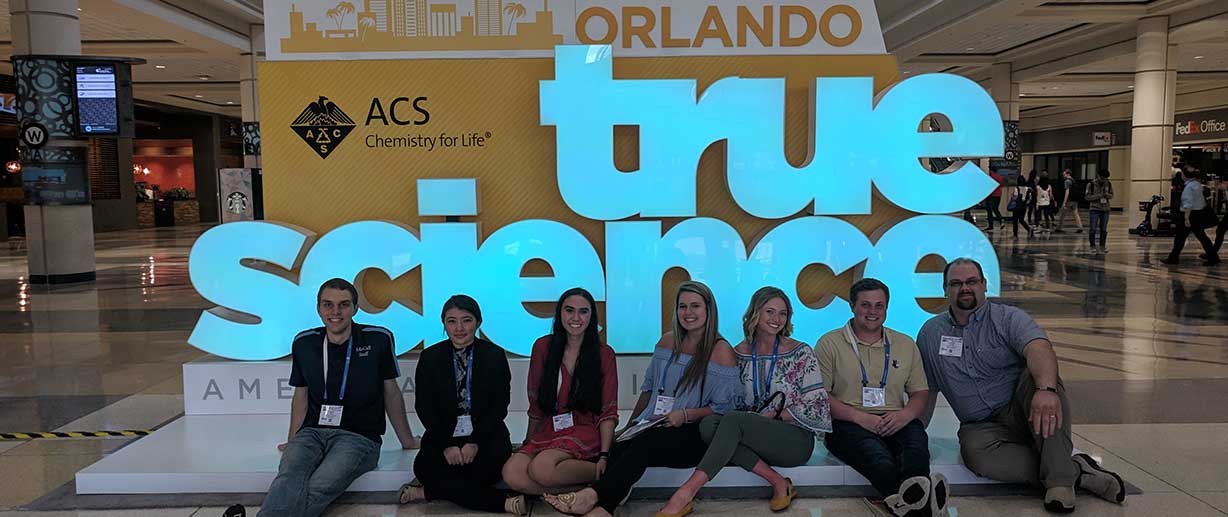While some students migrated to the beach for spring break, members of the Wofford College chapter of the American Chemical Society accompanied Dr. Zachary Davis, assistant professor of chemistry, to the organization’s national meeting in Orlando, Florida, from Mar. 30 to Apr. 4, 2019.
The annual meeting and exposition brought together more than 16,000 chemists from all over the world to experience 100 simultaneous symposia. Topics ranged from laser spectroscopy to medicinal chemistry. ACS is the world’s largest scientific society and allows chemistry professionals and students to share their ideas and passions.
“Many of our students take advantage of research opportunities, either on-campus or through other programs, but the ACS meeting is an opportunity to see a very broad view of chemistry,” says Davis.
According to Davis, stepping out of the formulaic setting of the classroom offers students options for research and study that they may never have considered.
“It can be overwhelming to enter a new environment within your field and quickly see that there is so much you don’t know,” says Davis. “This is excellent, however, because it can spark interest, especially in the smaller, niche areas of chemistry that we do not discuss in class or coursework.”
The ACS meeting also allowed students a sneak peek at the most recent advancements in scholarship and technology.
“Attending the ACS meeting allows us to see how professionals conduct themselves and gives us a glimpse into our future careers,” says Mikey Owens ’19, a chemistry major from Gaffney, S.C. “Gaining these experiences may help a student realize that career path is not for them, or it could give them the motivation to continue pursuing that career.”
During the ACS meeting, Owens presented his work on the quantification of flavor components in Scotch whisky and aged-corn whiskey. Focusing on identifying several chemicals that are commonly found in aged whiskey, Owens worked to quantify how much of each molecule was present in the various whiskeys tested to provide a possible reason why aged whiskeys taste differently than unaged whiskeys.
“Hanging up Mikey’s poster was a very proud moment for me,” says Davis. “To be presenting undergraduate research at a national level is rewarding, and Mikey has put a lot of time and effort into the research and the preparation.”
